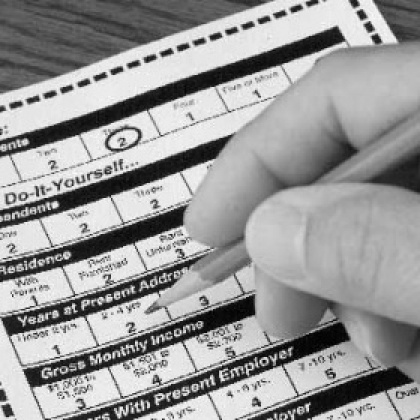03/29/2019: Understanding Your Credit Score
In life, there are a few numbers that are especially important to us. Things like your social security number, your passwords, your anniversary — maybe your batting average in your softball league. But when it comes to finances, there are few numbers as important as your credit score.
Credit Score Basics
Your credit score is used to represent your creditworthiness, or in common terms, your reliability to pay your loans back on time. It’s essentially your reputation as a borrower. Your credit score affects your ability to acquire things like car and home loans, influences your insurance rates, and can even be used as a factor in the hiring process. It can affect the size of your security deposits for utilities or an apartment, and a bad score can actually prevent you from being able to rent. Needless to say — it’s important to have a good credit score.
Credit score numbers usually range between 300 and 850, and the higher your score, the better. A high credit score lets lenders know you’re low risk, and people with high credit scores are eligible for lower interest rates and better lending options. This can amount to hundreds of thousands of dollars saved when you consider rates on things like mortgage and car loans, so keeping your credit score high is one of the best money-saving strategies out there.
Lenders actually use two types of credit scores: Vantage 3.0 and FICO. Vantage 3.0 scores are based on credit histories compiled by three consumer credit bureaus: Equifax, Experian, and TransUnion. FICO scores, introduced by the Fair Isaac Corporation as the first credit risk score, are also based on credit activity and current credit situation. Scores can vary between each Vantage bureau and FICO, but luckily the factors determining your scores are relatively similar. According to Reuters, ninety percent of lenders still use FICO scores, so we’ll focus on those to keep things simple. FICO scores are broken up into five levels:
Exceptional: 800 and higher
Very Good: 740 to 799
Good: 670 to 739
Fair: 580 to 669
Poor: 579 and lower
What Determines Your Score?
Your FICO score is comprised of five factors: payment history, your credit mix, amounts owed, length of credit history, and new credit. Your score can also be affected by things like bankruptcy, foreclosure, and judgements — and these all leave big dents. Here’s a breakdown of how these factors make up your score.
- Payment History (35 %): It’s crucial that you make your credit card payments on time. The number of on-time and past-due accounts will affect your score.
- Credit Mix (30%): Having different types of credit is good for your score. Credit cards, installment loans (which include student loans), mortgages, and consumer finance accounts are all aspects of your credit mix.
- Amounts Owed (15%): The lower the ratio of used credit vs. available credit, the better.
- Length of Credit History (10%): As the length of time you use credit increases, it positively affects your score.
- New Credit (10%): FICO discourages frequently opening new lines of credit. Diverse credit is good for your overall score, but each credit inquiry negatively impacts the number. An inquiry affects your score when you give a third-party permission to check your credit history to obtain credit or service.
Where Do I Find my Score?
Over 130 financial institutions nationwide provide consumers with free access to their FICO score. Check with your credit card provider to see if they offer free inquiries. Access is also available through many credit unions, the Discover Credit Scorecard, and the Fair Isaac Corporation.
How Do I Improve My Score?
Your score changes every day, and as outlined above, there are a variety of factors that come into play. Through diligence and smart financial choices, you can gradually build up your credit score.
- Pay on Time: Every time you pay on time, your score increases. If you can’t afford to pay in full, at least make the minimum payment, but aim to pay as much as you can.
- Vary Your Credit: Keeping a variety of credit bodes well for your score. Maintain a mix of installment loans and revolving accounts but remember to avoid unnecessary accounts.
- Avoid Excessive Inquiries: Each inquiry you make affects your overall score, so limit them to once a year.
- Maintain a Low Balance: Avoid maxing out your cards and keep the ratio of your used credit vs. available credit low. The lower your balance is relative to the available credit, the better it will reflect on your score.
Understanding your score plays a key role in your financial well-being. Your score will affect your ability to acquire future loans and can end up earning you excessive interest on payments. If your score isn’t where you want it to be, you have the opportunity to raise it by following the steps above. Credit scores change day to day, and you can make the necessary steps to start building a strong financial future. Just remember, it takes a long time to build up good credit — but credit can be ruined in a single day.




